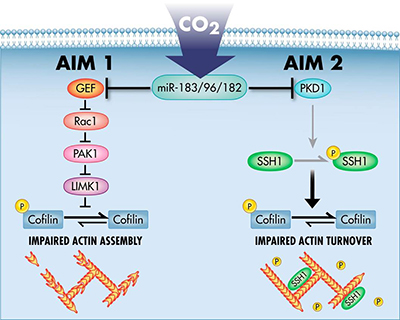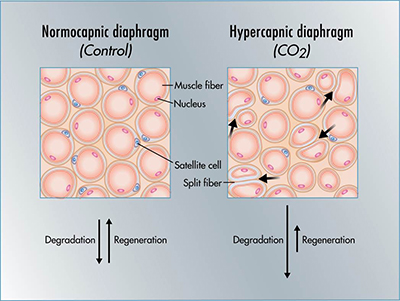The Deleterious Effects of Hypercapnia on the Lungs
Hypercapnia (high pCO2) is observed in patients with lung diseases such as chronic obstructive pulmonary disease (COPD), cystic fibrosis, broncho-pulmonary dysplasia and advanced neuromuscular diseases. Also, a ventilation strategy that includes "permissive hypercapnia” is commonly used in mechanically ventilated patients with the acute respiratory distress syndrome (ARDS). Data from our group and others have challenged the existing paradigm suggesting that hypercapnia is beneficial for patients with ARDS. Instead, we have reported that elevated levels of CO2 have direct, deleterious effects on alveolar epithelial function and host immunity. Furthermore, we hypothesize that hypercapnia promotes the ubiquitin-proteasome mediated degradation of diaphragmatic myofibers and impairs the function of muscle satellite cells required for its regeneration. As such, we are investigating the mechanisms by which hypercapnia leads to impaired recovery from lung injury and the effect of high CO2 on diaphragm muscle degradation and impaired regeneration. The proposed experiments will generate novel information on the mechanisms by which exposure to hypercapnia impairs alveolar epithelial and diaphragm function.

